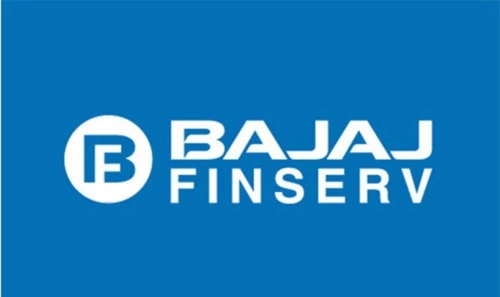Payroll is a non-negotiable business function that requires strict compliance with state and federal tax laws. It involves calculating employee pre-tax deductions and accurately reporting net income payments to local tax authorities.
The best payroll providers streamline the process, eliminating the burden of time-consuming administrative tasks. They also support and connect you with local experts to assist in compliance matters.
1. Automated Payroll
Navigating the landscape of payroll taxes for small businesses requires a nuanced understanding of regulatory complexities and compliance. Small business owners must diligently ensure accurate payroll tax calculations to maintain financial health and adhere to legal requirements. Payroll processing is one of the most tedious tasks a business faces. From calculating employee earnings to filing tax forms, there are endless details to keep track of and plenty of opportunities for mistakes. These errors can result in costly penalties, audits, and loss of trust. Automated payroll systems can streamline and simplify your operations. With a single, intuitive platform, you can automatically pay your employees, pension providers, and HMRC. This simplifies your financial workflows and creates a more transparent environment for you and your employees.
Another benefit of automated systems is that they can save you money on manual costs such as printer ink, paper, and storage space. These solutions often have robust data security features to protect sensitive information from unauthorized users. Automated systems also help you comply with your CRA obligations and avoid fines. Plus, they can boost employee satisfaction by allowing them to view their pay stubs and access their personal information independently. They can even request advances or repayments on a self-service portal.
Also See: How FICA Payroll Taxes Impact Your Take-Home Pay
2. Self-Service
While payroll may seem like a mundane back-office function, mishandling it can have far-reaching consequences. Beyond angry employees and lost revenue due to pay errors, poorly managed paychecks can impact business operations, financial compliance, labor laws, and reputation. Choosing the right payroll tax provider can save time and money for small businesses. Look for a robust solution that includes automated software, direct deposit, and streamlined tax filings and compliance. A good payroll service will also provide expert specialists to answer employee questions and address business concerns.
Reputable payroll tax providers serve as reporting agents (RAs) for the IRS and help employers fulfill their obligations by making required tax deposits and informational tax filings on behalf of their clients. However, it is essential to note that employers remain responsible for paying income tax withheld and the employer portion of Social Security and Medicare taxes. RAs should carefully evaluate their client’s tax history for errors and identify the correct taxpayer liable for payment. A reputable RA will help clients resolve errors and avoid costly penalties.
3. Tax Support
Payroll taxes, or employer withholdings, are critical to employee paychecks. Accurate calculations ensure that income tax, Social Security, Medicare, and other deductions are correctly withheld from each payroll. Timely remittance to government agencies also helps protect businesses from legal issues and penalties.
Keeping up with changing rules and regulations and maintaining compliance can feel overwhelming for small business owners. Outsourcing payroll tax services can free up valuable hours, enabling companies to focus on sales and customer growth. Choose a provider that specializes in the specific requirements of your industry to avoid costly mistakes and delays. Evaluate their software and ask about their process for handling sensitive data. Check that they have a robust online tax filing system that integrates with your accounting and HR systems, simplifying data management. Look for a service that automatically reports state and local taxes and provides direct deposit for fast employee payouts. Also, choose a provider that uses the Electronic Federal Tax Payment System (EFTPS) to deposit taxes so you can easily verify payments. This reduces errors and ensures that your taxes are being paid on time.
4. Mobile Apps
While payroll taxes are a critical part of any business, they are also highly complex. Calculating employee wages and deductions, filing required forms, and remitting taxes require accuracy or risk costly penalties. Robust software from a top provider simplifies the process and ensures compliance. Mobile apps can also streamline small businesses by facilitating digital document management. Using an app to scan documents with your smartphone can eliminate paper clutter, reduce the risk of losing valuable documentation, and make it easier for employees to access necessary information. Payroll services can save time and money by reducing errors and eliminating expensive fines for non-compliance. Automating wage calculations, tax payments, and year-end filings allows owners to focus on sales and operations. In addition, robust reporting and analytics provide insights into labor costs, overtime trends, and productivity, allowing owners to make data-driven decisions that drive operational success. This optimization can save businesses an average of $12,000 each year. Choosing a reliable provider that offers affordable rates, user-friendly software, and added services like customer support, security protections, and data integrations is essential.
5. Customization
Payroll taxes are a complicated part of the accounting equation for any business. To correctly manage them, business owners must use accrual-based accounting (recognizing that payroll tax payments are expenses to be paid in the period incurred). To help with this, the “Payroll Taxes Payable” ledger account offers a holding place for these funds, so they’re consistently recognized as liabilities on your books.
It would help if you were also calculating and withholding the correct amounts from employees’ paychecks. The IRS provides standard withholding tables for five types of payroll periods, including weekly, biweekly, semimonthly, monthly, and daily/miscellaneous. Using these tables, you start with an employee’s gross wages, reduce them by their number of withholding exemptions, and then consult the appropriate table to determine how much to withhold each pay period. These withholdings are used to fund Social Security and Medicare—the Federal Insurance Contributions Act, or FICA—along with federal income taxes. With the right tools and some help from the experts, you can manage these deductions effectively and avoid paying too much come tax time.















